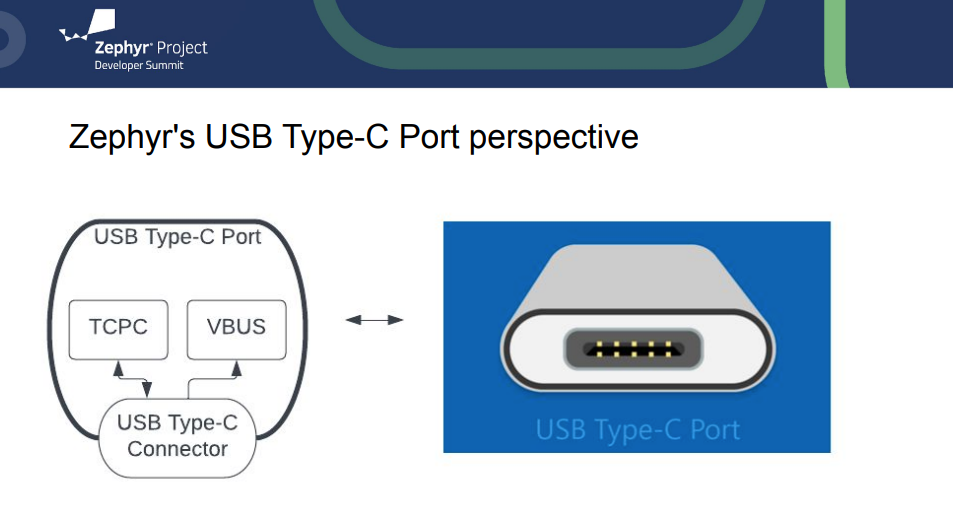
The Zephyr Developer Summit, hosted under the first-ever Embedded Open Source Summit in Prague, Czech Republic, on June 27-30 included presentations, BoFs, and training designed for real time problem solving and deep discussions. More than 1,300 people registered for the EOSS conference – representing 375 organizations across 56 countries around the globe. Zephyr had 75+ technical sessions (in-person and on-demand) for 3 tracks focused on users of Zephyr, developers contributing upstream, and maintainer-specific topics.
All of the videos from the Zephyr Developer Summit can be found on the Zephyr Youtube Channel. Each week, we’ll highlight a few videos in a blog for easy access. Today, we’re featuring a few sessions focused on USB including, “USB Device Support in Zephyr RTOS from the Application Perspective,” “Implementing a Custom USB Device Controller Driver in Zephyr,” “Analyze USB Traffic with Wireshark,” “USB Type-C and You,” and “New USB Device Class API Introduction.“
USB Device Support in Zephyr RTOS from the Application Perspective – Johann Fischer, R&D Engineer at Nordic Semiconductor ASA
Zephyr RTOS has an implementation of USB device support pretty much from the beginning. Apart from direct use in the user application, various subsystems in the Zephyr RTOS also make use of device support. Since version v.3.3.0 there is also a new device stack as part of the experimental USB support. Johann will give an overview of USB device support in the Zephyr RTOS from an application perspective. He will also cover the differences and features in the new experimental support.
The video will start with configuring USB device support, how to select the desired features (classes) and how to enable USB device support. Johann will give a step-by-step insight into the different USB class implementations and go into their peculiarities and how they work in or with other subsystems. Author will explain how and why some functions are described and configured via the device tree and others are not. Special attention will be given to the configuration and use of the CDC ACM class.
[embedyt] https://www.youtube.com/watch?v=RmW92eFJy8M[/embedyt]
Implementing a Custom USB Device Controller Driver in Zephyr – Mohammed Billoo, CEO at MAB Labs, LLC
Analyze USB Traffic with Wireshark – Tomasz Moń, Senior Firmware Engineer at Nordic Semiconductor Poland Sp. z o.o.
USB Type-C and You – Google’s Diana Zigterman, Embedded Software Engineer & Samuel Hurst, Embedded Software Engineer
Watch the rest of the Zephyr Developer Summit videos here. The schedule and links to the PPT presentations can be found here. Photos from the EOSS can be found here.
For more information about the 2024 event, stay tuned by subscribing to the Zephyr quarterly newsletter or connect with us on @ZephyrIoT, Zephyr Project LinkedIn or the Zephyr Discord Channel to talk with community and TSC members.
New USB Device Class API Introduction – Johann Fischer, R&D Engineer at Nordic Semiconductor ASA
Watch the rest of the Zephyr Developer Summit videos here. The schedule and links to the PPT presentations can be found here. Photos from the EOSS can be found here.
For more information about the 2024 event, stay tuned by subscribing to the Zephyr quarterly newsletter or connect with us on @ZephyrIoT, Zephyr Project LinkedIn or the Zephyr Discord Channel to talk with community and TSC members.